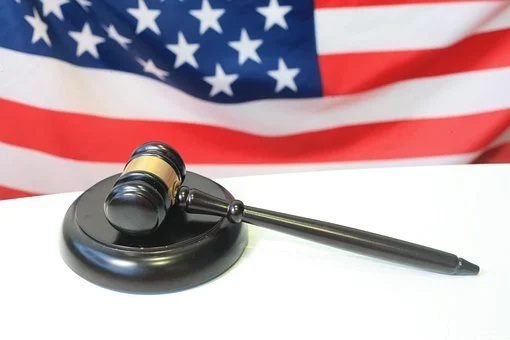The recent Roundup Cancer Lawsuit settlement has raised many questions from people affected by this weed killer’s use. In this article, we will clarify what is going on with the lawsuit and how you can get compensation if you are affected by the product.
How to Know If You Are Eligible for Roundup Lawsuit
There are several ways to determine if you are eligible for a Roundup lawsuit against Monsanto, the maker of Roundup. First, you should determine whether or not your exposure to Roundup was through agricultural or home use. If it were agricultural, you would need to prove that the product warning label on the package did not match what happened in the field.
This can be done by providing evidence of this discrepancy and showing that it led directly to your illness. If it were from home use, you would need to show that there was a failure to warn about the dangers associated with exposure to Roundup. This can be done by providing evidence of this failure and showing that it led directly to your illness.
Second, you need to prove that Roundup caused the illness. This can be done by providing evidence of the link between Roundup and your condition, such as a doctor’s diagnosis or medical records showing your exposure. You must have experienced physical or emotional harm caused by a defective product. You are not eligible for compensation if you have suffered no physical and emotional damage.
When you are certain that Roundup caused some damage to you and you can prove that, you can file a Roundup Lawsuit to get your compensation.
How to Apply for Compensation for the Settlement?
There are several steps to complete to apply for compensation for the settlement.
Step 1: Contact Your Lawyer
If you are a plaintiff in the Roundup Lawsuit Settlement, you should contact your lawyer immediately.
Step 2: Get Your Documents Ready
Before making any other steps, go through all your documents related to the case. This includes all medical records of your injuries and other documentation supporting your compensation claims.
Step 3: Prepare for Your Deposition
The next step is preparing for your deposition with the law firm or another attorney representing Monsanto. During this time, they will ask you questions about what happened during the time of exposure and how it has affected you.
You must be prepared with answers to these questions so that they can help ensure that your case has the best chance of success possible before going forward with a trial against Monsanto.
Step 4: Send in Documents from Your Doctors and Other Attorneys
After submitting all necessary documents from yourself and any medical professionals involved in your treatment, your lawyers will send them over to Monsanto’s attorneys so they can review them before making any decisions regarding settlement payments on behalf of the company.
What Evidence Do You Need to Win the Claim?
Here, we will look at what evidence can help you win the claim. First, you must have used Roundup for at least two years and have been diagnosed with non-Hodgkin lymphoma or another form of cancer.
It is important to note that this time frame is not based on the length of time between when Roundup was first introduced into the market and when lawyers filed lawsuits. It’s based on a study by Dr. Lennart Hardell, which found that people exposed to glyphosate for more than 30 days had a higher risk of developing cancer than those exposed for less than 20 days.
If you meet these criteria, one other factor may prove helpful in your case. Your medical records should show how long ago your diagnosis was made. Suppose they don’t include this information or indicate that your doctor didn’t conduct any tests before diagnosing non-Hodgkin lymphoma as “idiopathic,” meaning he couldn’t determine what caused it. In that case, this could mean trouble for you later. So, make sure all relevant documents are available before filing a claim!
Do You Need a Roundup Receipt to Apply for the Claim?
You do not need a receipt for Roundup to apply for the claim. Instead, you can prove that you purchased Roundup by providing information about your purchase of Roundup, including the date and location where it was purchased.
If there is any doubt as to whether or not the product was purchased from a particular store and, if so, on what date and time, it is best to ask an attorney for help proving these facts before filing a claim with Monsanto.
What Are the Brands Involved in the Roundup Lawsuit?
Roundup is a brand name used by one of the largest agrochemical companies in the world, Monsanto Company. Roundup is a weed killer that can be applied to lawns, gardens, and fields to kill unwanted plants. It’s also used on farms to control weeds between crops or before planting begins for season-long control of pests like grasshoppers and chinch bugs.
A second brand name you may hear about in Roundup lawsuits is Ranger Pro, which was sold as an alternative with fewer restrictions than other herbicides used by farmers who wanted more flexibility in their spraying methods while still offering effective results against weeds without damaging crops around them.
Ranger Pro was later discontinued after its active ingredient glyphosate became controversial due to concerns over its safety and toxicity levels when applied directly onto foods such as soybeans harvested from fields where they were sprayed earlier in their growth cycle.
Other brands include Honcho; Vision; Turf Builder; Carbide; Killer; Transorb (now owned by Dow Chemical); Pinnacle (formerly known as Touchdown), Ultra (marketed initially under the name Accord), Garlon (currently manufactured under license from Syngenta).
Conclusion
The Roundup lawsuit has been a controversial topic for many people. Some of them are trying to find out if they are eligible for claims compensation and others just want to know more about the settlement details.
If you have any questions about this settlement or need help with your claim, look up a reliable and experienced attorney who can guide you through everything, from filing the lawsuit to getting the compensation.

















